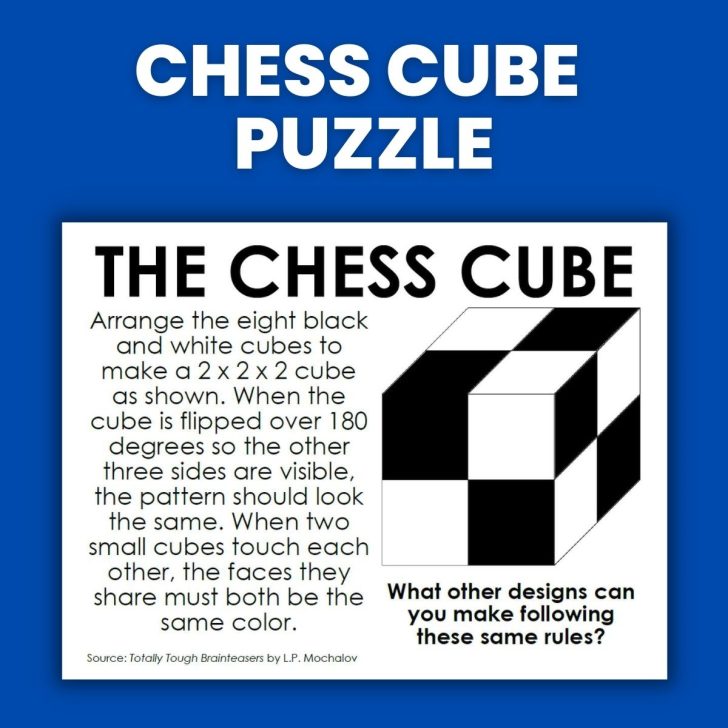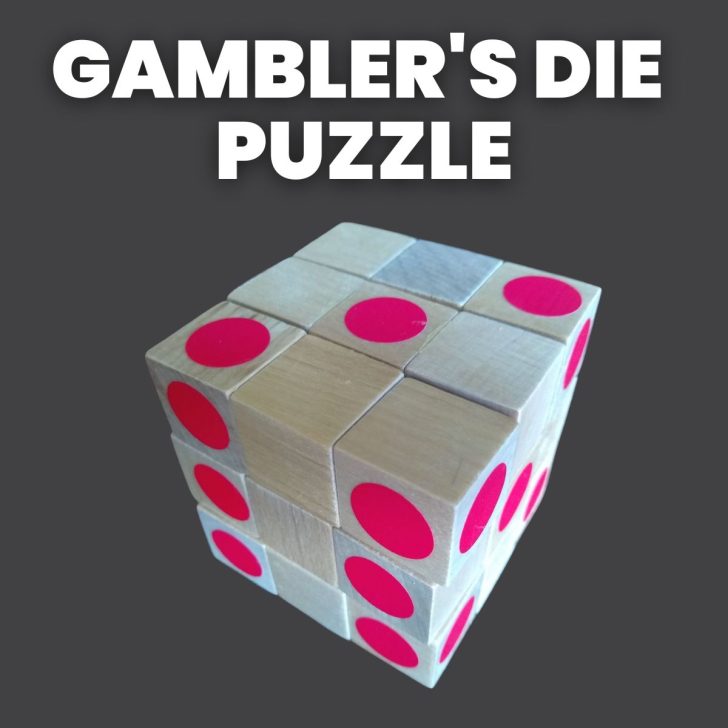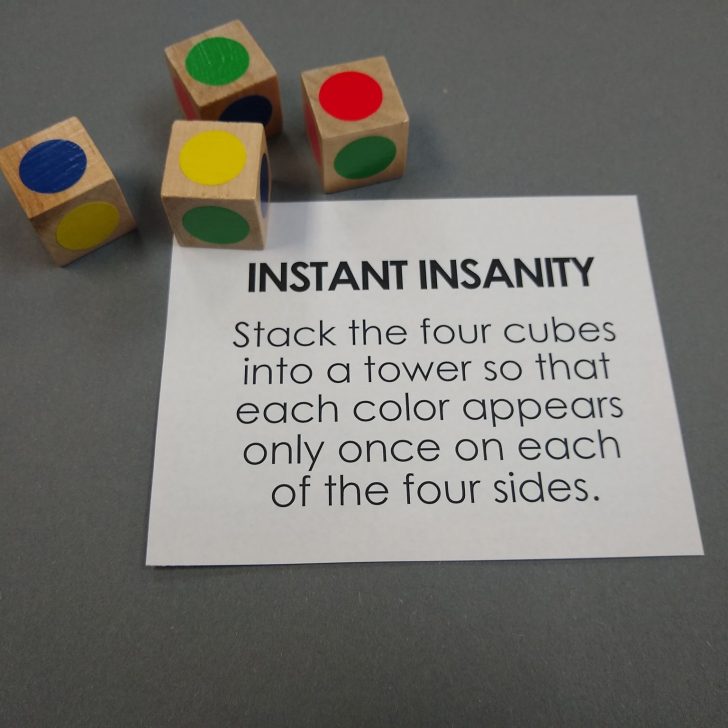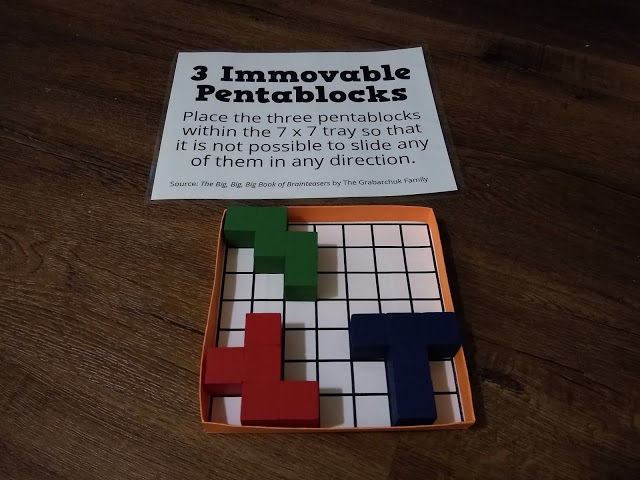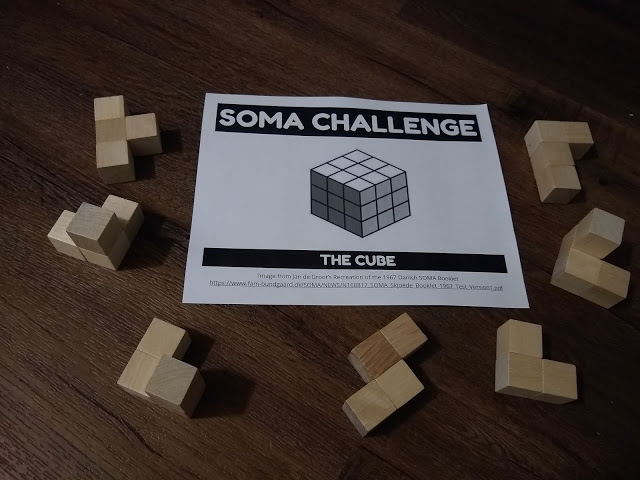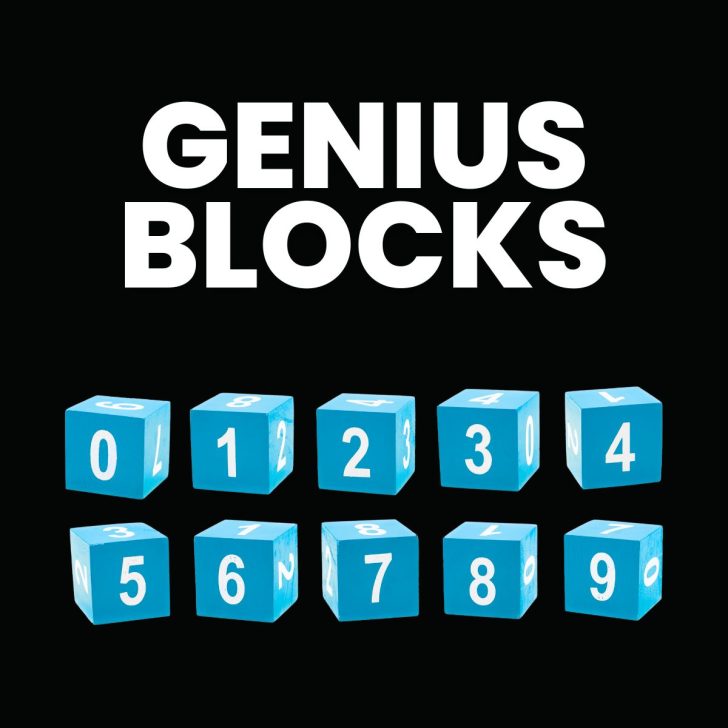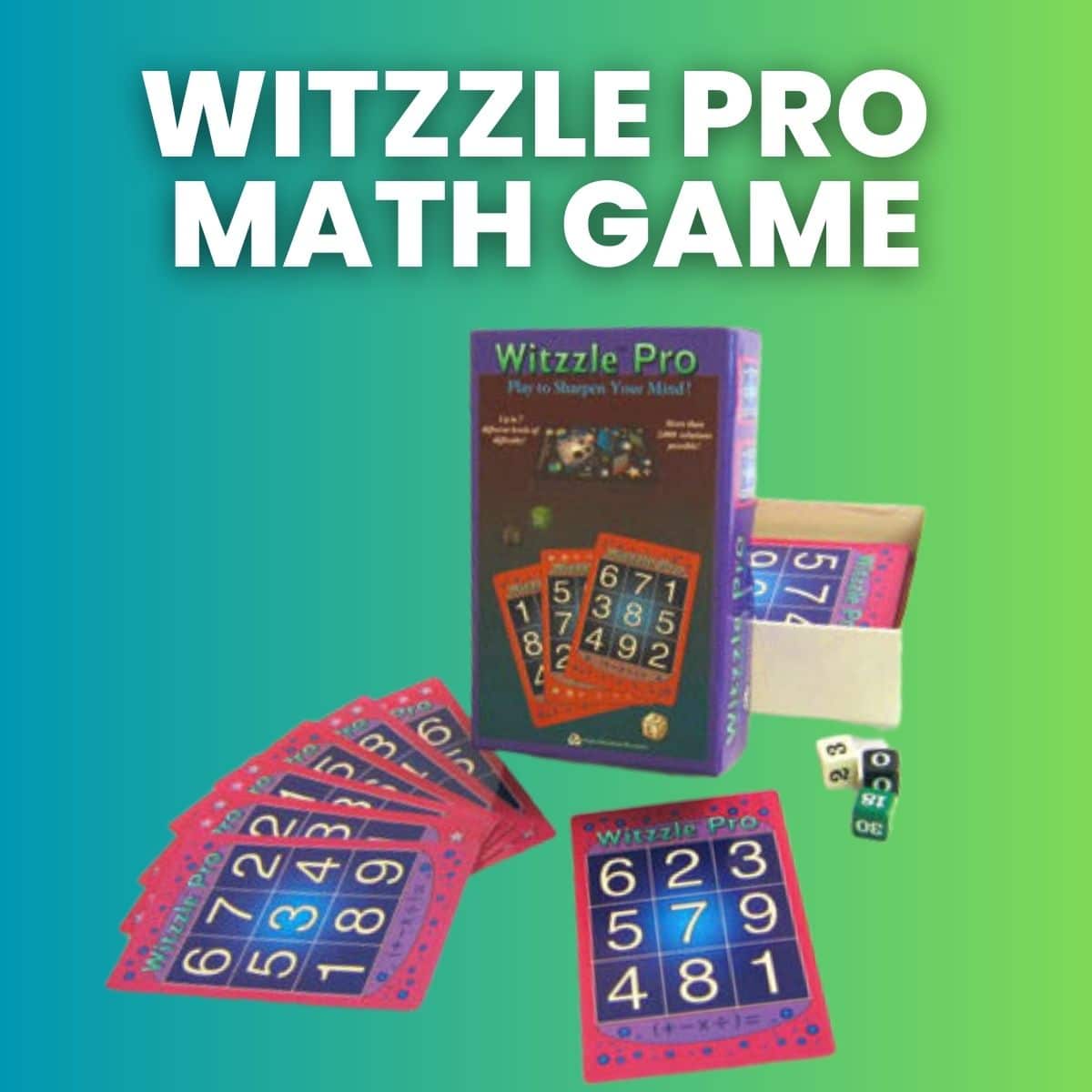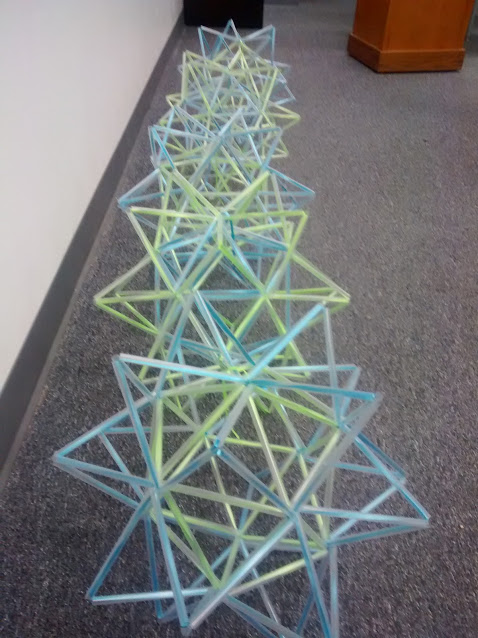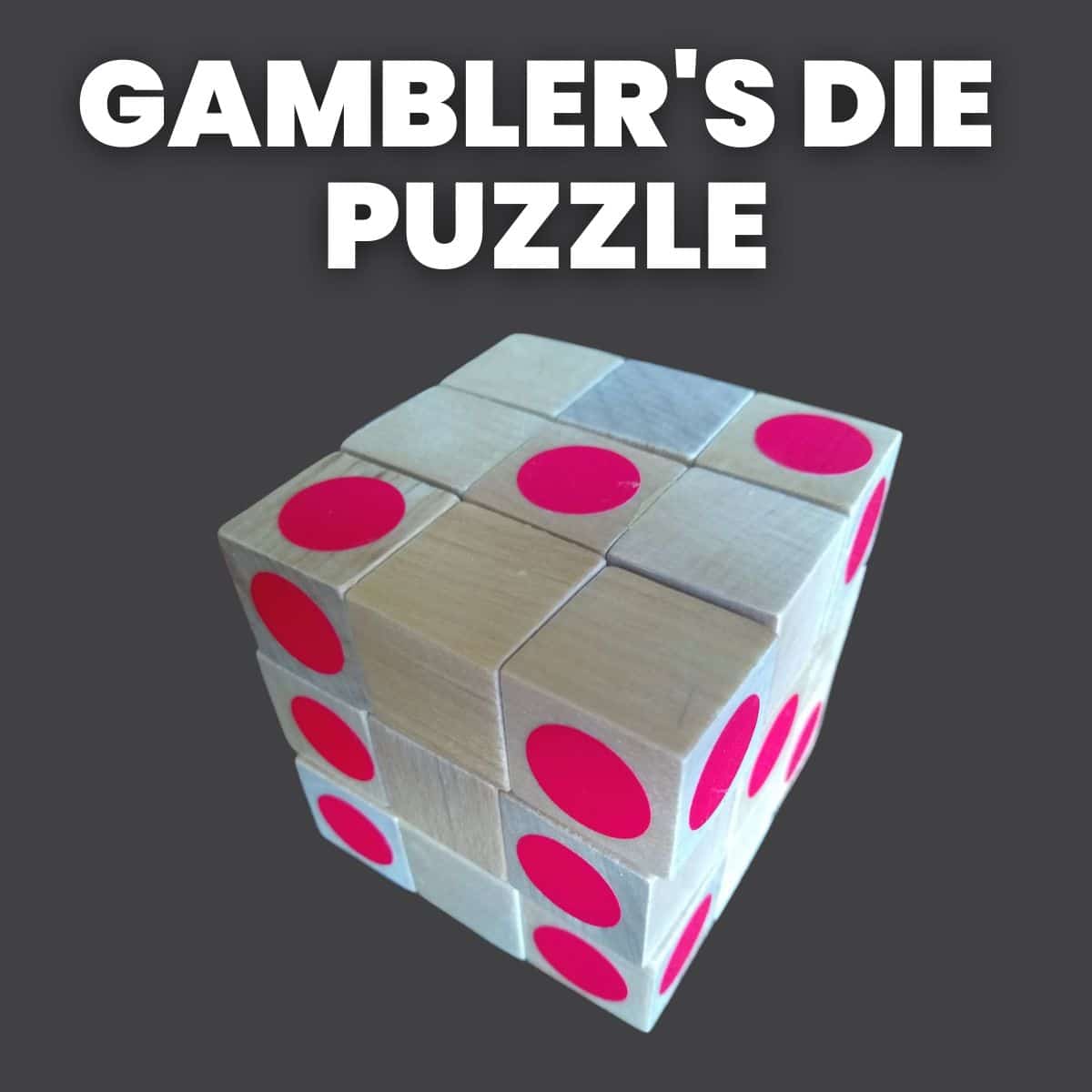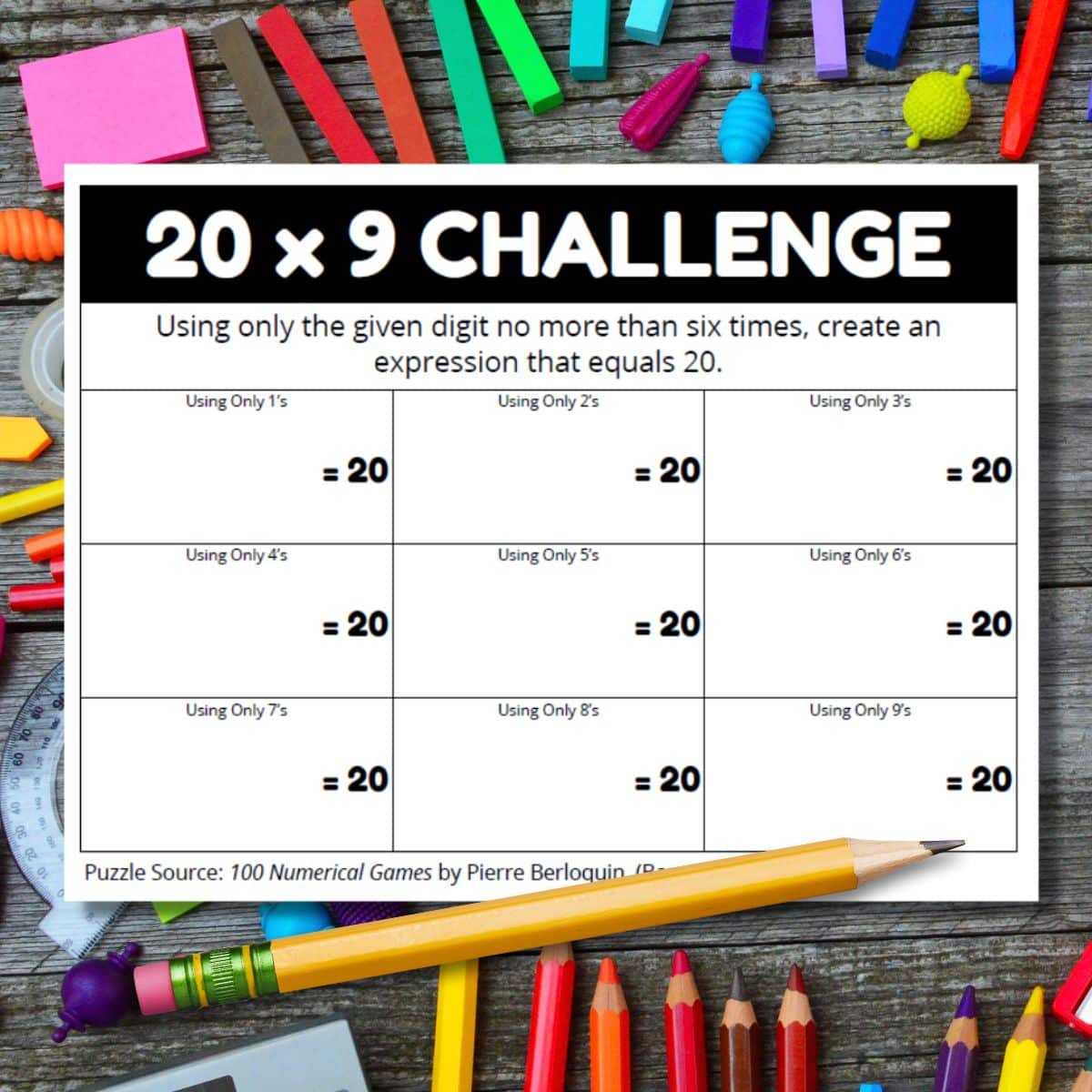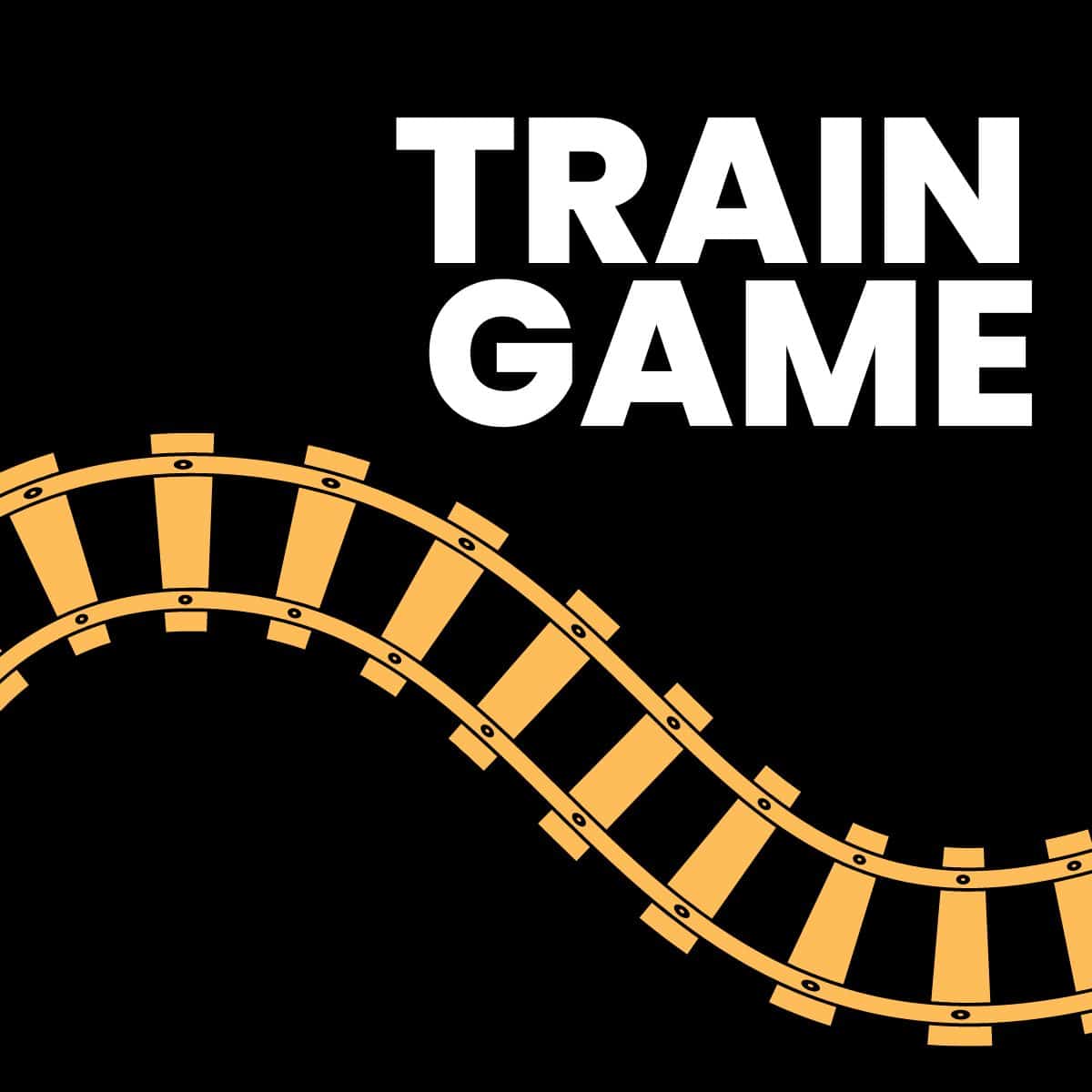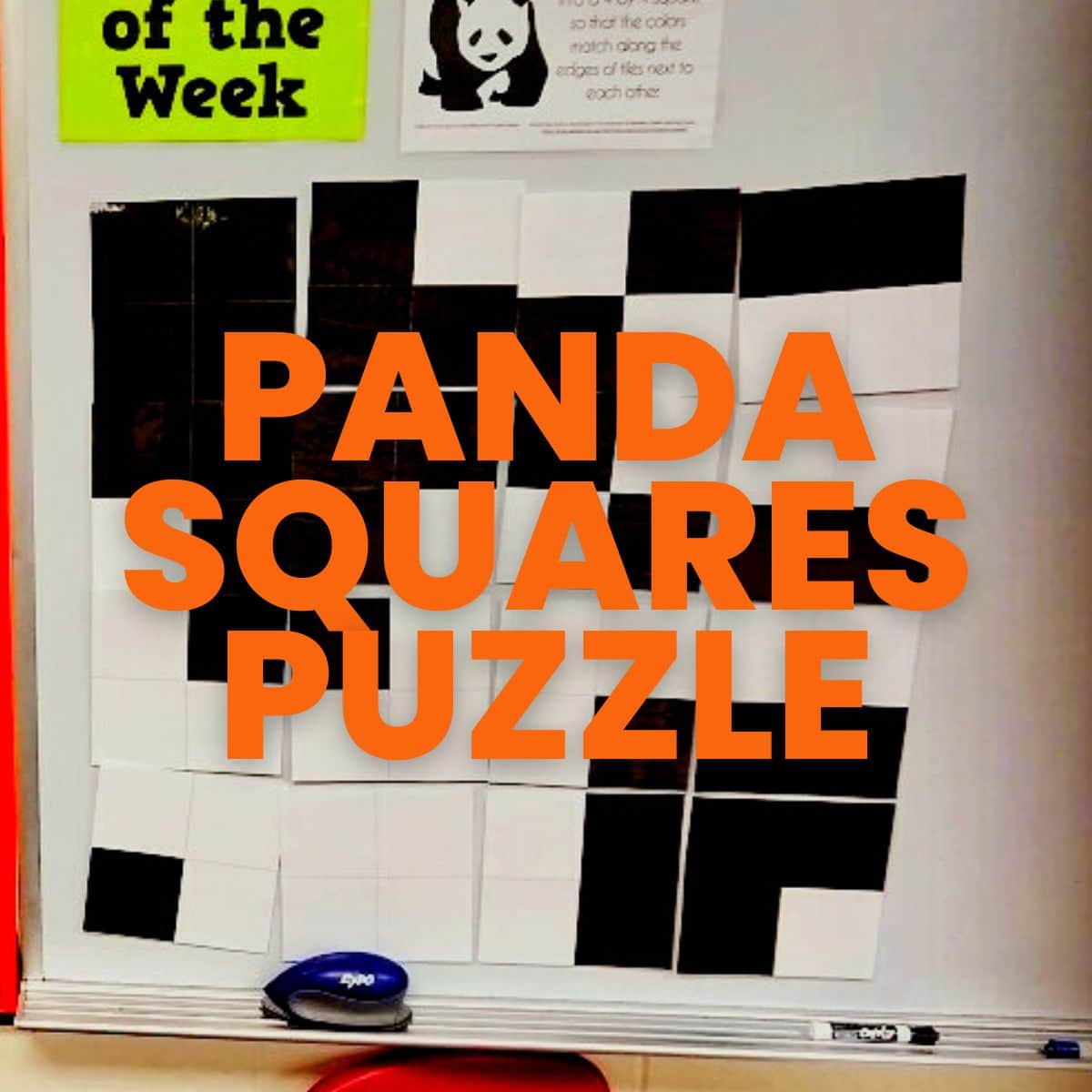DIY Instant Insanity Puzzle
This blog post contains Amazon affiliate links. As an Amazon Associate, I earn a small commission from qualifying purchases.
Want to check out my favorite Amazon items for the classroom? Check out my Amazon favorites page!
Several summers ago, I created a DIY Instant Insanity Puzzle as part of my summer quest to create as many puzzles as possible using a bag of 1 inch wooden cubes.
That summer, I created and blogged about SOMA Block Challenges, Genius Blocks, and the Three Immovable Pentablocks Puzzle. I never got around to blogging about my DIY Instant Insanity Puzzle that I also created that summer because I had not typed up a set of instructions to post with it.
I have declared 2021 to be the year where my goal is to “FINISH” all these random tasks I’ve started and left incomplete. For example, yesterday I finally got around to editing a double angle identities joke worksheet I had created years ago.
I also finally blogged about a logarithms PBA I created with a group at a common core workshop that was too many years ago to remember exactly when it was. It has felt refreshing to put these lingering tasks from ancient to do lists to rest once and for all.
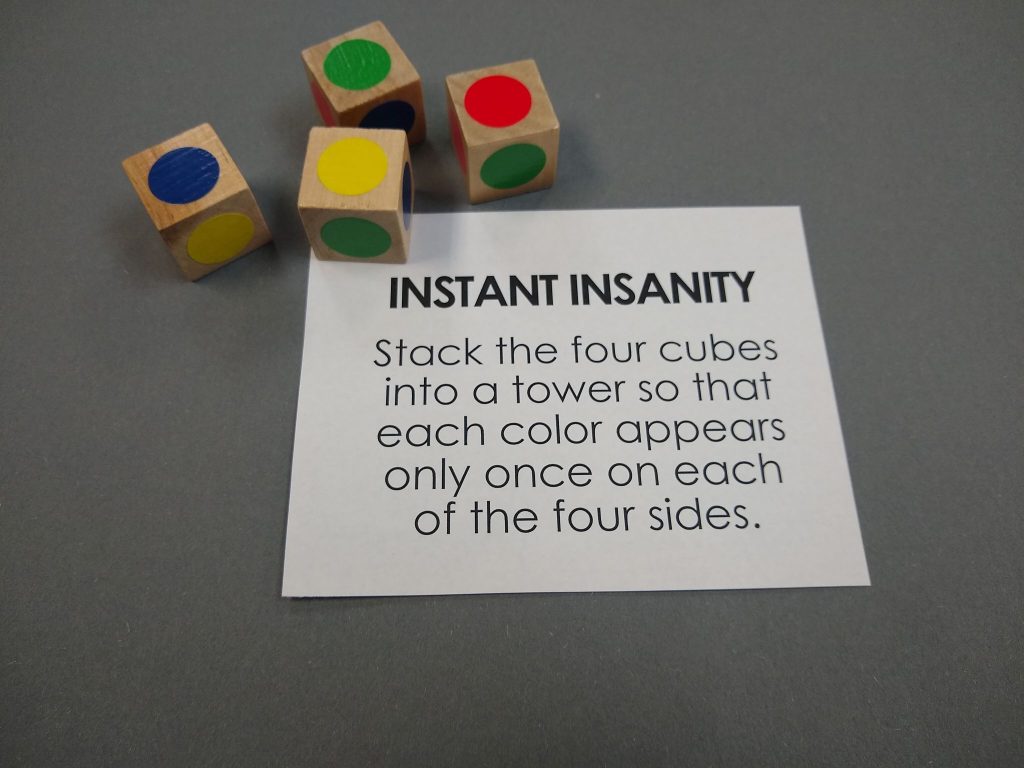
The Instant Insanity Puzzle is a classic puzzle that goes by many names. Parker Brothers originally published the Instant Insanity Puzzle in 1967. The concept behind the puzzle itself is much older, however.
The first patented version of this puzzle was by F.A. Schossow in 1900. That version of the puzzle featured the different suits from playing cards instead of the different colors used in the Parker Brothers version. This website features many pictures of the puzzle in its various forms over the years.
The task of the instant insanity puzzle is to stack the four cubes into a tower so that each color appears only once on each of the four sides.
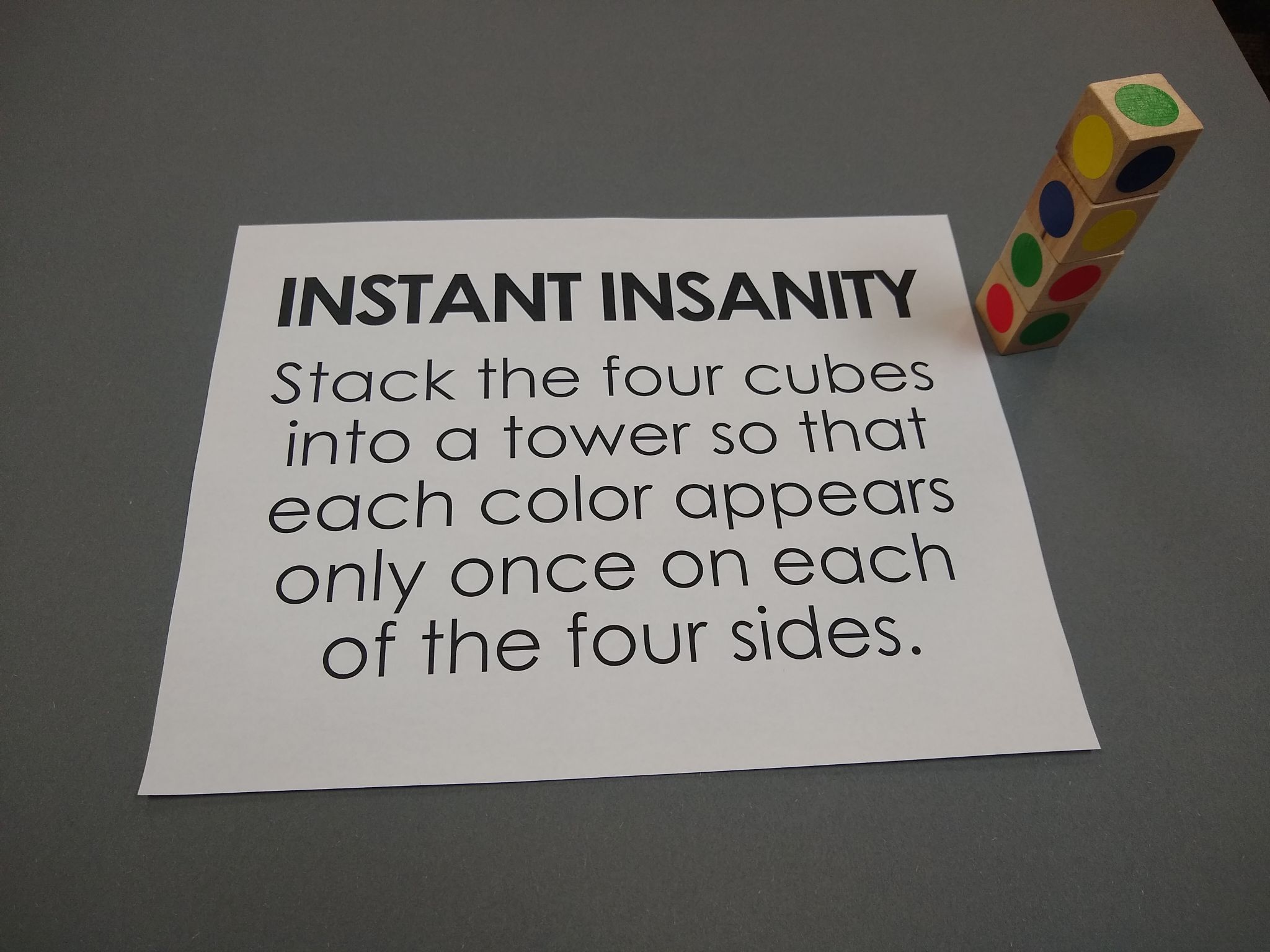
Impressed with my solution? Don’t be. Let’s take a peek at the other two sides of my tower…
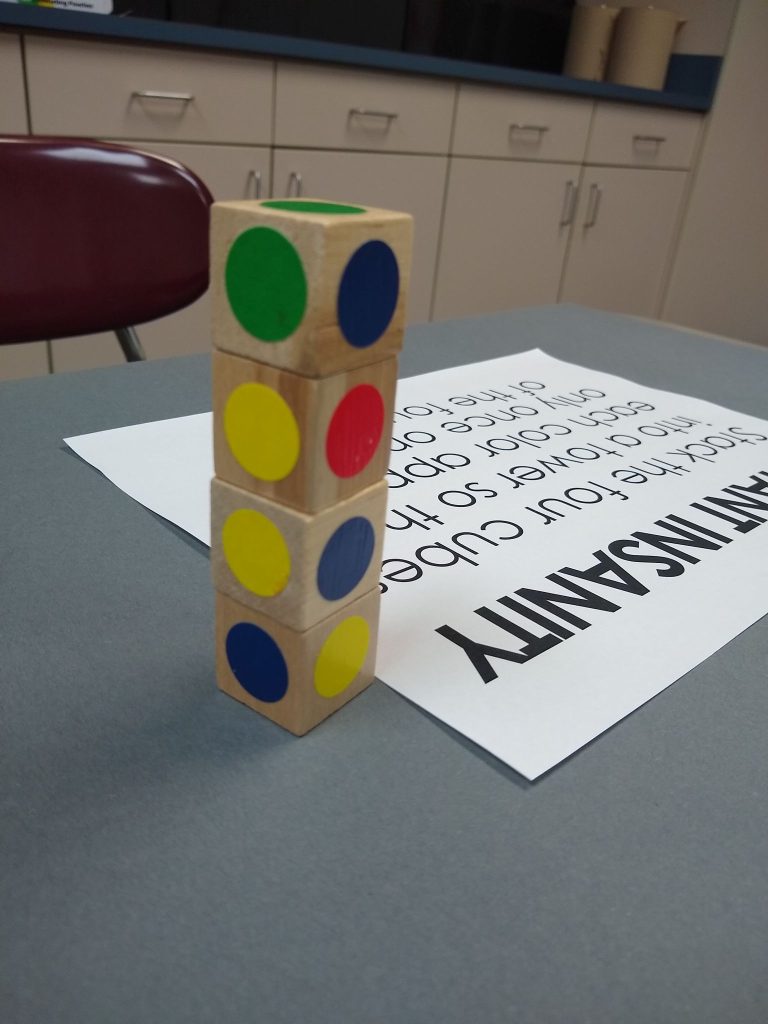
Sadly, due to COVID restrictions, it will be quite a long time before I’m able to put this out on my puzzle table to challenge my students. Until then, it will just have to live in my filing cabinet of puzzles.
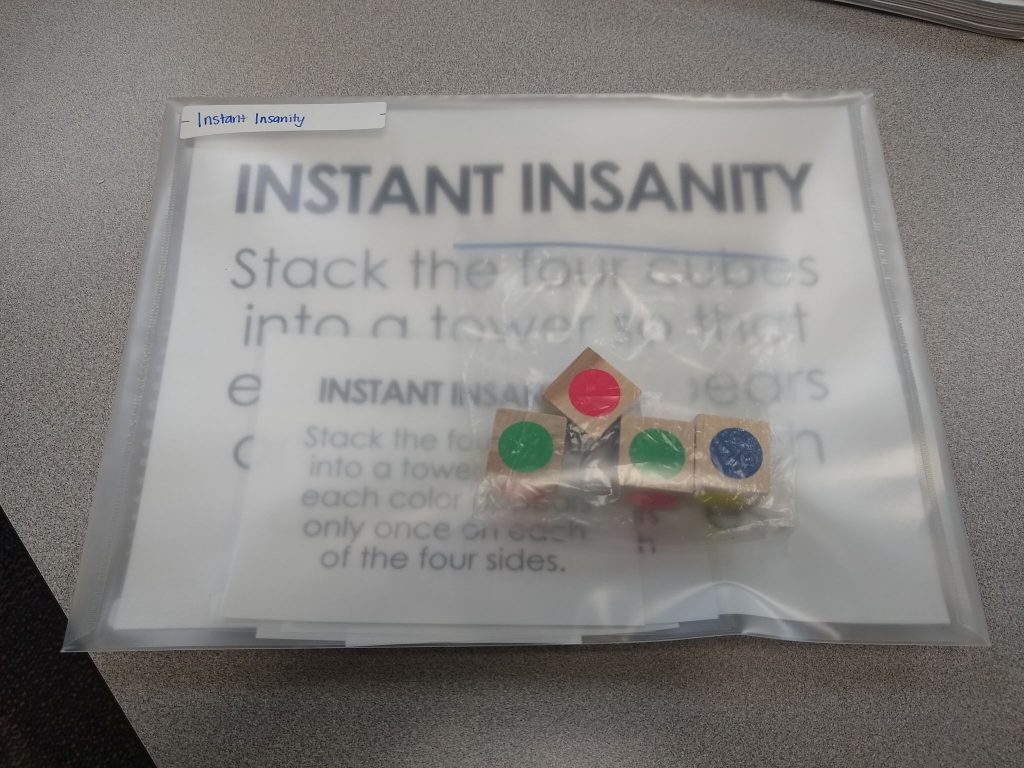
I created two sizes of instructions – a full page of instructions and a quarter page.
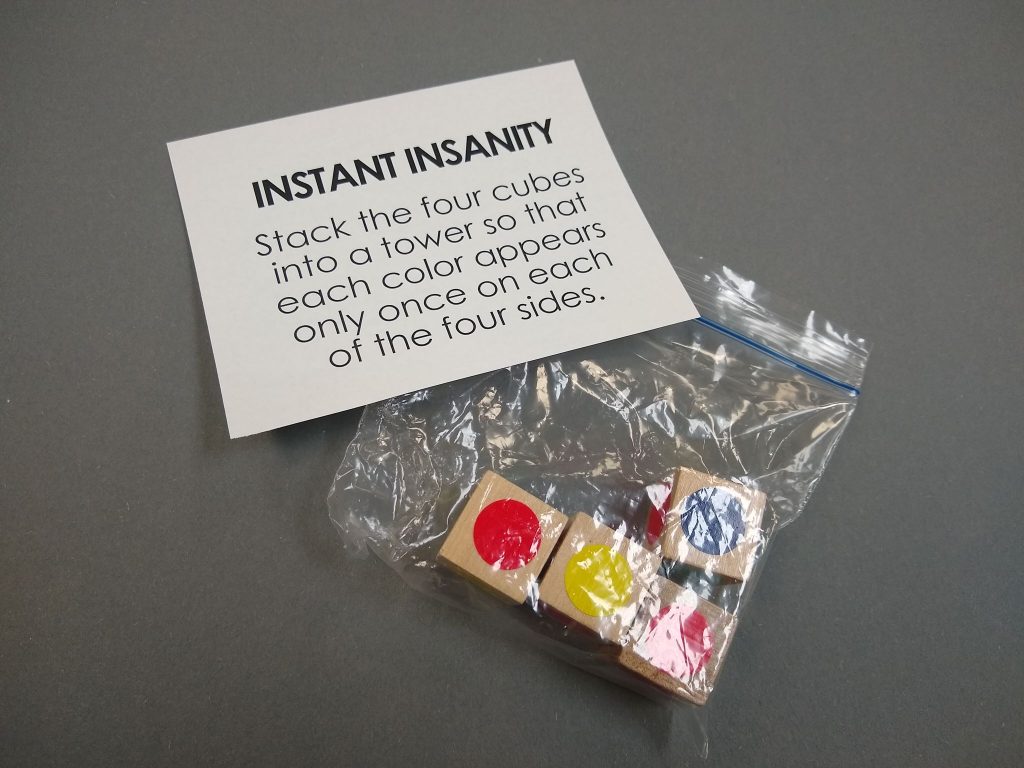
I’ve arranged the 4 to a page instructions so that they can easily be cut apart on a paper chopper.
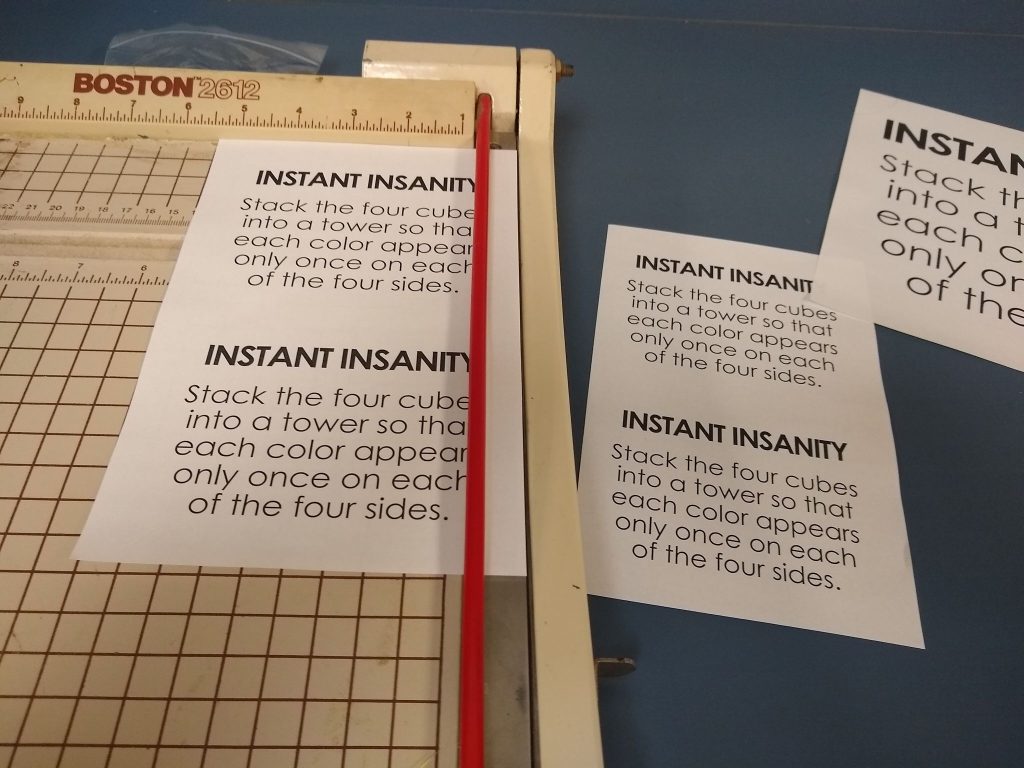
So, how do you create your own DIY set of Instant Insanity blocks?
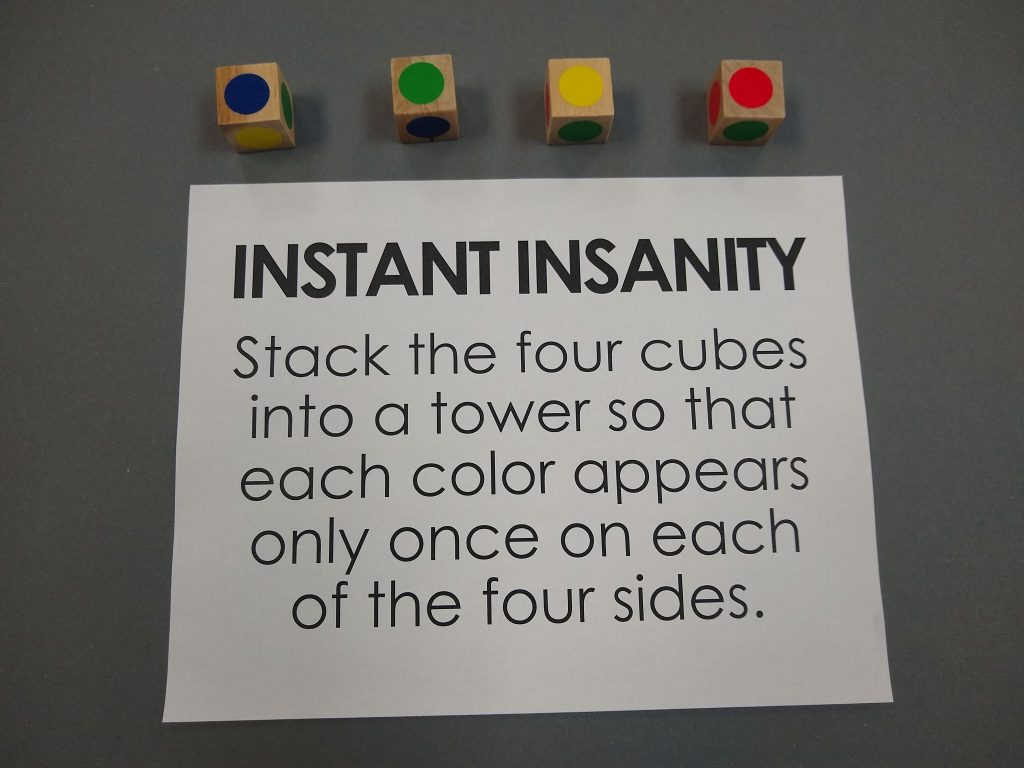
For my supplies, I used dot stickers and 1 inch wooden cubes. I bought a bag of 100 cubes from Amazon, and I’ve had so much fun turning them into different puzzles.
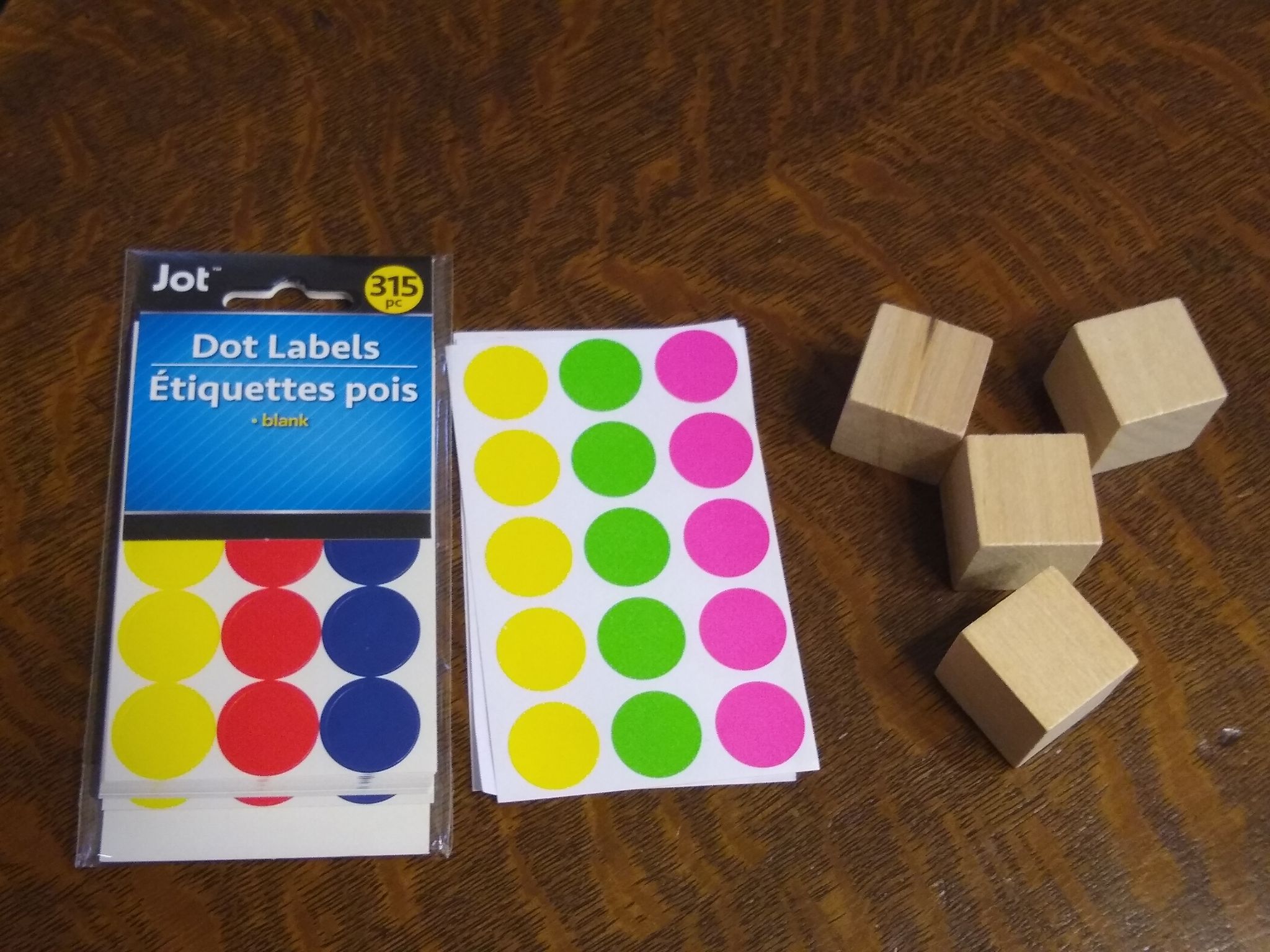
You will need four different colors of dot stickers, so you will likely need to pick up several packages since they tend to put three colors to a package. I already had the yellow/green/pink dot stickers from when I used them to create scatter plots in statistics. I grabbed the package of yellow, red, and blue dot stickers from Dollar Tree for $1.
ThinkFun has a section on their website of “Big Games” you can create. Instant Insanity is one of the featured games. They suggest building a set using four identical sized boxes.
I don’t have room in my classroom to store such a big set, so that’s why I opted to create mine from 1 inch cubes. I think the box version would be a lot of fun in the future when this pandemic is over and groupwork can once again become a norm in the classroom. They provide a PDF with instructions to create your own set.
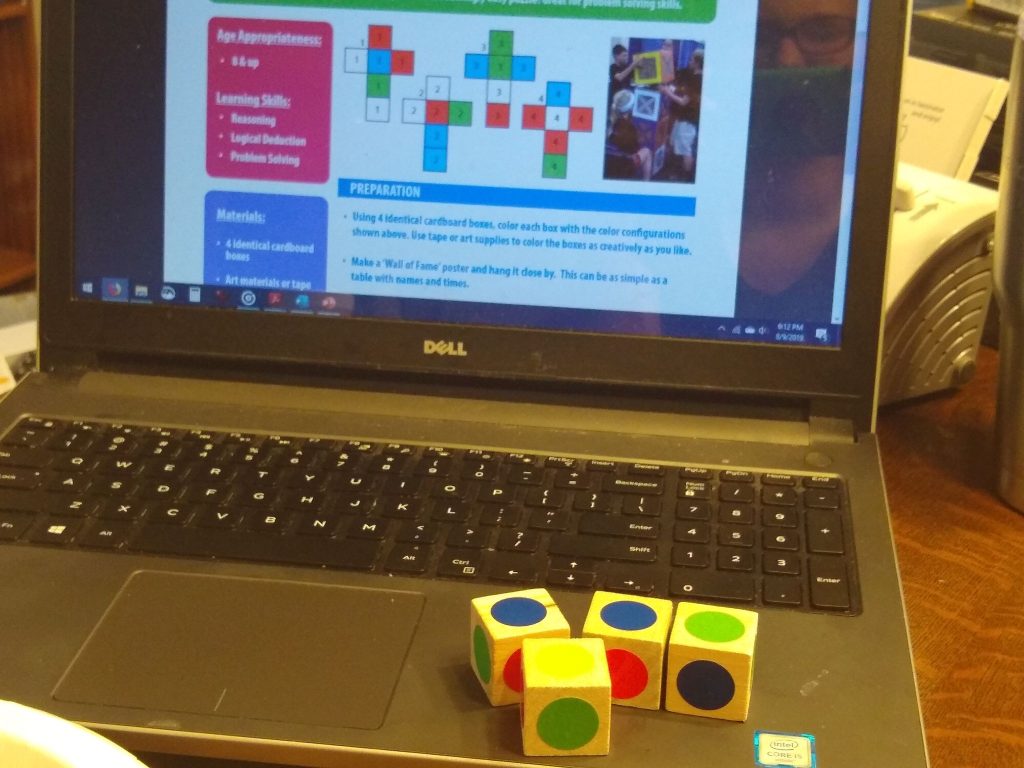
I used the diagrams provided in ThinkFun’s PDF to correctly place the dot stickers on my cube.
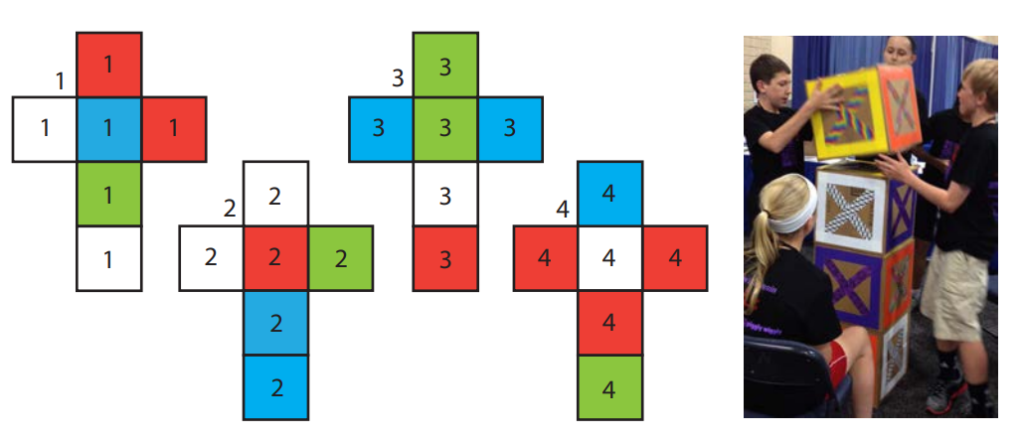
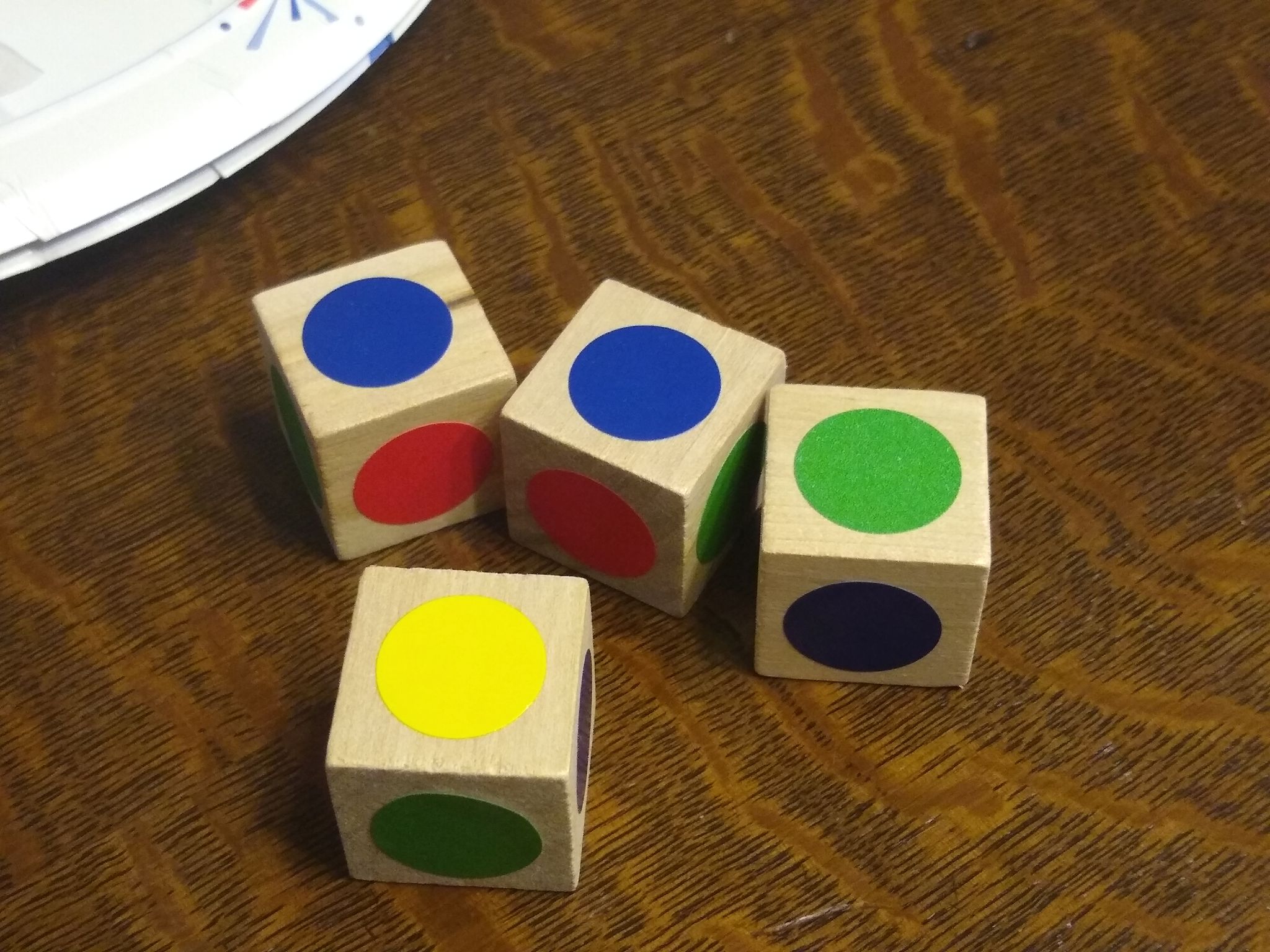
I could have painted each side of the cube, but that sounded messy. And, I’m a bit too much of a perfectionist to take on a task like that. Sticking dot stickers on wooden cubes seemed much faster and easier.
To keep the stickers from coming off, I applied matte Mod Podge.
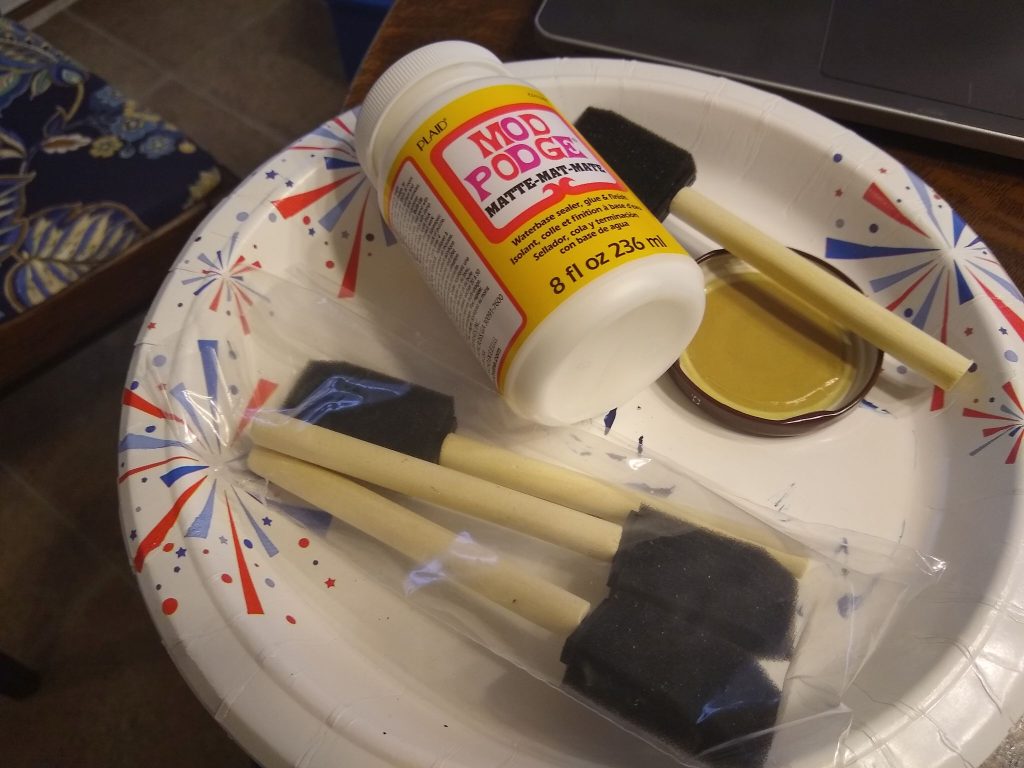
The Mod podge looks a bit cloudy when you apply it, but it dries clear.
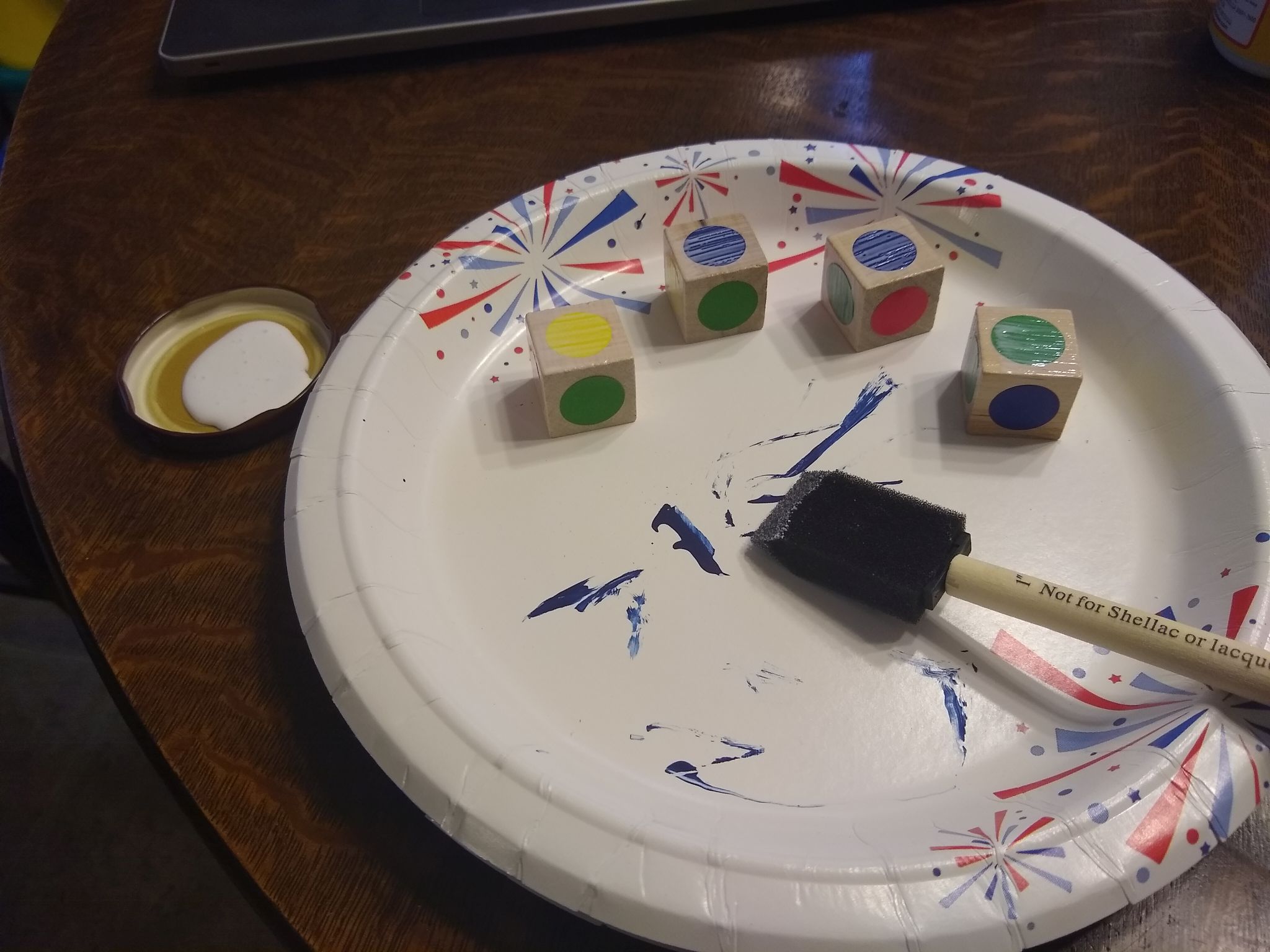
Hopefully I will one day be able to update this post with students playing with this puzzle on the puzzle table!
Download Instant Insanity Instructions
Instant Insanity Instructions (PDF) (2076 downloads )
Instant Insanity Instructions (Editable Publisher File ZIP) (1181 downloads )
Have extra cubes? You might want to try your hand at making Genius Blocks or SOMA Blocks!
You can find all the puzzles I’ve shared before on my puzzles page!
Puzzle Solutions
I intentionally do not make answers to the printable math puzzles I share on my blog available online because I strive to provide learning experiences for my students that are non-google-able. I would like other teachers to be able to use these puzzles in their classrooms as well without the solutions being easily found on the Internet.
However, I do recognize that us teachers are busy people and sometimes need to quickly reference an answer key to see if a student has solved a puzzle correctly or to see if they have interpreted the instructions properly.
If you are a teacher who is using these puzzles in your classroom, please send me an email at sarah@mathequalslove.net with information about what you teach and where you teach. I will be happy to forward an answer key to you.

